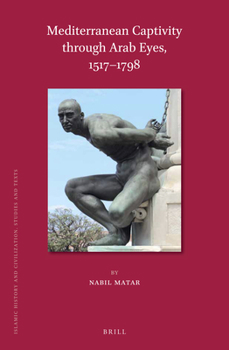Mediterranean Captivity Through Arab Eyes, 1517-1798
The post-Lepanto Mediterranean was the scene of "small wars," to use Fernand Braudel's phrase, which resulted in acts of piracy and captivity. Thousands upon thousands of Europeans, Arabs, and Turks were seized into bagnios stretching from Cadiz to Valletta and from Sal? to Tripoli. After returning to their homelands, dozens from England and France, Germany and Spain, Malta and Italy wrote about their captivities. Their accounts were printed, distributed, translated, and plagiarized, making captivity a key subject in Europe's Mediterranean history. While Europeans wrote extensively about their ordeals, the Arabs wrote little because their religious culture militated against such writings, which would be construed as expressing disaffection with the will of God. Nor were there detailed records and registers of captives - their names, places of origin, and ransom prices - similar to what was kept in the European archives. Contrary, however, to what some historians have claimed, there was a distinct Arabic narrative of captivity that survives in anecdotes, recollections, reports, miracles, letters, fatawa, exempla and short biographies in both verse and prose. Cumulatively, these sources constitute the Arabic qiṣṣas al-asrā, or stories of the captives, in the native language and idiom of the men and women of the early modern Mediterranean.
Format:Hardcover
Language:English
ISBN:9004440240
ISBN13:9789004440241
Release Date:November 2020
Publisher:Brill
Length:306 Pages
Customer Reviews
0 rating





